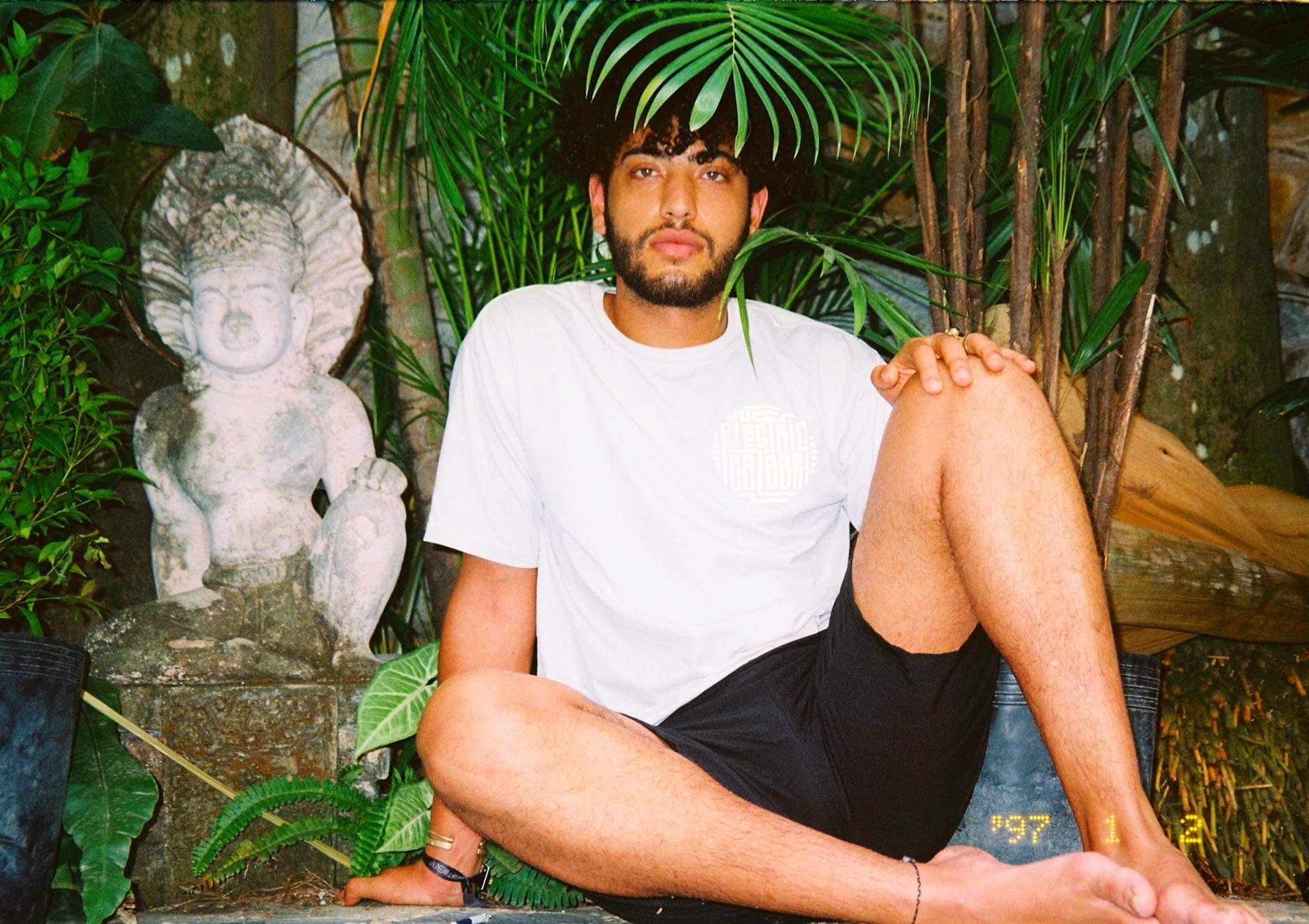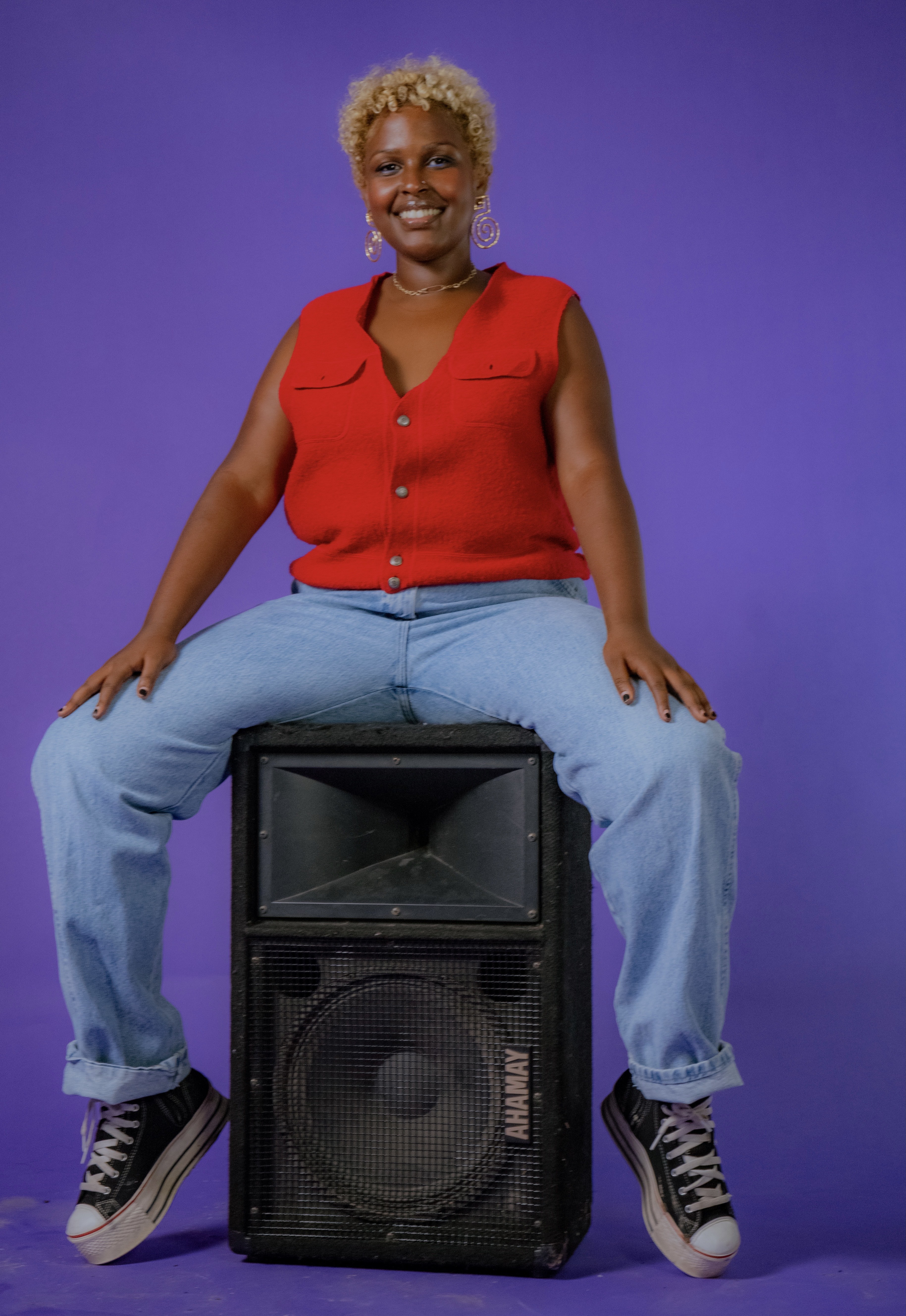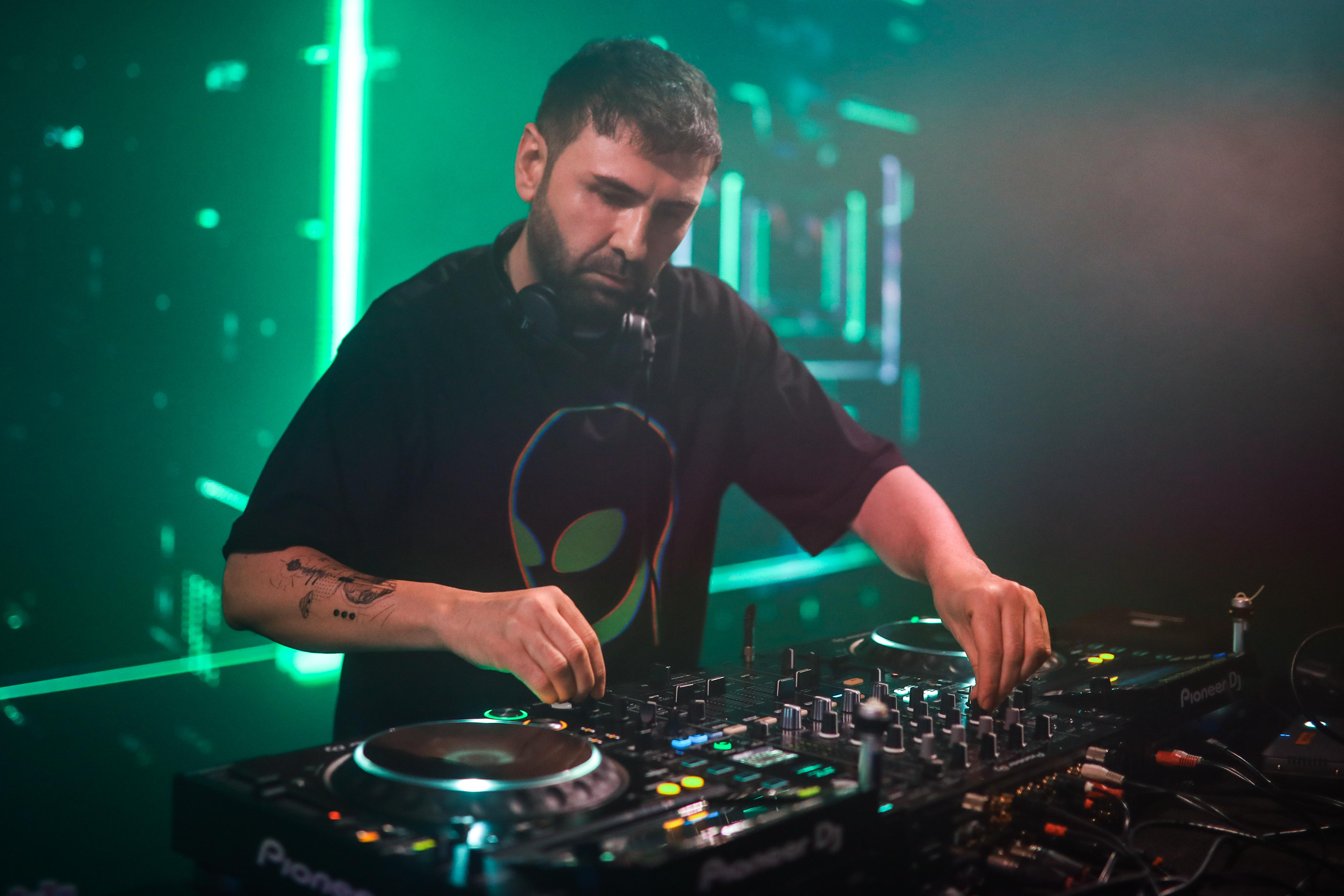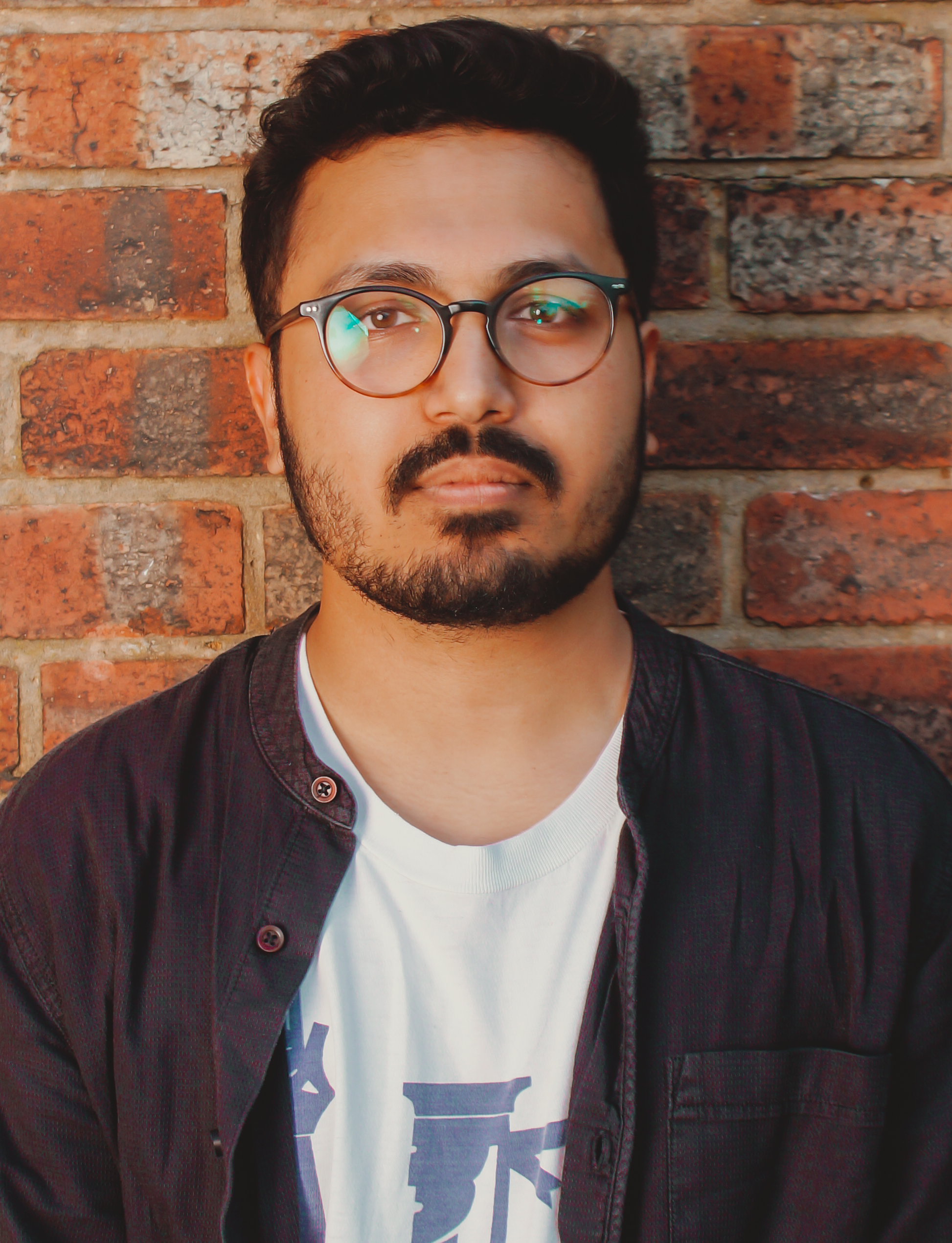 Features
Features
“It’s an opportunity to switch off and reset”: How Muslim DJs navigate Ramadan
Aneesa Ahmed speaks to artists as they share what Ramadan means to them, how it changes their music habits, and what they learn during the holy month
Ramadan is a time for Muslims globally to get closer to their faith, their families, and their core beliefs. Fasting, generosity, minimalism, and continuous gratitude are all part of this month-long observance — a period to connect and devote oneself wholeheartedly to God. But for Muslims who also happen to be DJs during the period, it becomes a challenging effort to maintain both the Ramadan rituals of fasting, remaining sober and abstaining from excessive music consumption — all while working within the nightlife/music industries. We sat down with a number of Muslim DJs from across the planet to talk about what the holy month means to them, their religious beliefs and the impact Ramadan has on their regular routine.
One sentiment that rang unanimously true was that Ramadan was sacred and special to all: “Ramadan is my favourite time of year,” DJ Freshta explains. Freshta is a Rinse FM DJ who often also plays club gigs, however, she chooses to stop DJing during Ramadan. “It is time for me to build my relationship with God and to improve my self-discipline. I always look forward to it.”
Read this next: Britain's first out Muslim drag queen: Asifa Lahore is a proud clubland pioneer
Freshta’s reverence of the holy month is echoed by the majority of the artists we spoke to; Muzz Khan, Provhat, Serdar Ayyıldız (aka Nodus), YASMEENAH, Kan D Man,useph, and DJ Kye. Whether they fast, do not fast, or pray five times a day or once a day — for them, Ramadan is more than a series of rituals.
Some DJs have made significant changes to their habits during this month, which include more than merely fasting and staying sober. Some of these changes include not DJing at clubs and abstaining from radio sets, choosing not to listen to music, limiting socialisation, and using this time to find peace with oneself and with God.

Provhat, a co-founder of Daytimers and a DJ involved in the organisation of the electronic music festival Dialled In, says that this time of year is often markedly different to the rest: “I don’t go out of my house unless I have to or to visit other family and family friends. I significantly cut down on even listening to music, let alone DJing. I still do work with Dialled In and Daytimers, but more on the admin side of things. Music is seen as haram for the most part, and listening to it is generally seen as not acceptable. So for that reason, it’s always been contentious. I try to stay away from things that are considered haram, just because I want this time to be about my faith.”
Some artists use this time away from DJing as a way to take a break from the intense nature of the music industry, and use this month as a time of personal growth. BBC Asian Network’s Kan D Man describes Ramadan as a personal detox: “It is a detox for me for the mind, body and soul. Sometimes in our industry, we are always rushing and on the go, especially being in London my whole life; I know how fast-paced life can be on a daily basis. It is a month I like to detox, switch off and reset everything.”
Minneapolis-based DJ YASMEENAH also believes that this is a time for self-growth: “I take the month off of gigs and use Ramadan to focus on my spirituality, giving back, making time for family and close friends, revisiting the areas in my life that need improvement. Islam is all about being intentional with the way we live our lives. Sometimes working in nightlife and music I think I can lose track of that and get lost in the sauce. I got to spend the first two weeks of Ramadan in Somaliland and that grounded me. Everyone is practising Ramadan and I hear all the calls to prayer so it’s easy to follow. Now being back in America I am kinda struggling to keep that motivation.”
Read this next: Riz Ahmed: “Home is a place that we're creating through our art”
However, despite not taking on external gigs and using the time to be at one with herself and her faith, YASMEENAH still chooses to DJ and listen to music in private in her own home. “I’ve decided during Ramadan to still listen to music and play at home but just not as much. I’m even focusing on listening to music that is not vulgar and higher vibrational like some sweet deep house with little lyrics. Embracing feel-good music that makes me want to tap into myself and God.”
Moroccan-born, Vietnam-based DJ Useph is a proud Muslim who does not stop playing DJ sets, due to his crucial role in keeping the scene in Vietnam thriving. However, he does still sporadically fast despite not taking this time completely off. Useph runs Electric Baazar, a series of parties held all over Vietnam. He keeps throwing parties and working during Ramadan due to his tight involvement with the project, remaining sober — even on the days when he’s not fasting. But he does keep raving, even on the days when he is fasting. “I love to be surrounded by music, it helps fill my soul and helps me be more in tune with myself, which is what I think Ramadan is about,” he explains.

“So this Ramadan, I went to a festival [Equation Festival] sober for the first time. It was honestly life-changing. I was fasting for a couple of days at the festival, but I also didn’t for the other two because my body was feeling so dehydrated and I had to put myself first. On the days that I was fasting, I even broke my fast on the dancefloor with the love of all of my friends! The feeling of breaking my fast literally in the rave was euphoric, it made me feel a way that no substance ever has. But being sober at an event was such a great experience, I found myself falling in love with myself and the things that I love even more and it was an opportunity to cleanse.”
Other DJs don’t fast at all, don’t stick strictly to sobriety, and also continue taking on gigs. But despite this, they continue to put their faith and customs first. Istanbul-based Serdar Ayyıldız (aka Nodus) explains that for him, it is vital he keeps playing DJ gigs and continues to advance his career in electronic music due to how competitive and fast-paced the industry is. “You take a month off, and it can set you back so much. Especially somewhere like here in Istanbul. I worked hard to get to where I am, so I will keep doing my job. I still respect my religion, to me Ramadan is a time to spend with family and keep being grateful for everything I have. I have a relationship with my faith which is personal to me, but I can’t afford to be able to take time off.”
Read this next: "Only about the music" South East Asia's underground is in a golden era
Serdar says that many clubs and electronic music nights in Turkey are put on hold during Ramadan anyway due to a large proportion of the population fasting. This means he is often booked for gigs at shisha lounges after sunset — when fasts are being broken and people are heading out to see family and friends. “A lot of people here in Istanbul think the same as me. Some of us started fasting and DJing a few years ago, but it was too much as it was impacting our health. So now I don’t fast, I take extra care of my health, I take extra care of my family who is fasting, but I play.”
Many UK-based DJs who do stop playing sets during the holy month acknowledge that not partaking is a privilege that they can afford.“ DJing isn’t my primary income, so I’m lucky to be able to decide what I want to be able to do regarding DJing,” says Freshta. “I decide to not do any shows and turn down any show offers, I don’t DJ in clubs either. It’s my own decision not to want to put myself in these spaces during this period. I don’t really think it is needed, and it isn’t necessarily for me during this month. I just think it’s unnecessary as I can focus on fasting and Ramadan,” she explains.
Muzz Khan reiterates this, despite not fasting during the month, he actively has decided to not take on any DJing gigs. “I choose to not take on DJ gigs during the month out of respect, first and foremost. My brother passed away on Christmas Day 2021, and I decided to take some time out of DJing then too because in Islam it is custom to mourn for 40 days, to not go out, to not listen to music, to not partake in things normally considered “fun”. I chose to not DJ then, and have now decided to bring this to Ramadan 2022. But DJing is not my only source of income, and I can afford to feed and care for my family without it. So I understand that I am privileged to be able to make this decision.”

Arguably the greatest challenge faced by Muslim DJs, not just during Ramadan but throughout the year, is that they feel conflicted in what they do. In a lot of interpretations of Islam the act of listening to music and immersing oneself in club environments is seen as “haram” or “not permissible”. DJ Kye explains: “It’s tough in the sense of what I do is seen as haram and technically that's not wrong so I do feel conflicted as it shouldn't outweigh all of the other religious things I take part in.”
Daytimers’ Provhat agrees. He actively does not listen to music during this month, and he admits that the holy month often reminds him of the contentious relationship that he and other Muslims around him experience: “I mean I always have some level of guilt, I think that’s a Muslim thing. There’s always going to be a sense of guilt about where I am, the spaces I occupy and what I’m doing.”
“So it’s always in the back of my mind. Some places bring it out more, but some things are better at clouding it. Sometimes I can think of all the other good things happening. Dialled In was a great example of that, as I knew I shouldn’t really be there, but it was community-focused. But it’s nice chatting to people and hearing them have conversations that they’ve never had before, so hearing people feel comfortable somewhere in a way they’ve never done before.”
Read this next: What Do Your Parents Think?: 4 South Asian DJs share their family's reception to a music career
Dialled In has been known to champion South Asian voices and create an inclusive space for South Asians. This year, Dialled In took place in London during the month of Ramadan, something which Provhat admits was an “oversight” on the part of the organisers. “We understand it was an oversight, and we take full responsibility for it. Dialled In is meant to represent the South Asian community, and this one did not represent those who are Muslim and would be abstaining from events like this. However, while we considered cancelling, it would have resulted in a lot of money being lost and perhaps a sacrifice of future events. So we continued ahead with our plans, but made adequate adjustments to attendees who were fasting and ensured that food and water for those breaking fast were provided and that there were prayer rooms in the location, far away from the noise.”
He reiterated that this would not be a recurring problem and that for future events they would continue to always try to make sure their events are truly representative of South Asian identities.

As part of South Asian DJ collective Daytimers, Provhat and the team organised an Iftar event in collaboration with Sup Supper Club for Muslim members of the music community to come together and break their fast. “Community is so important to us, and our platform with Daytimers extends beyond just electronic music, we also do things for our community and for the people we want to represent.”
However, the growing awareness amongst non-Muslims of Ramadan and its traditions has created more space for those practising during the holy month. “People are becoming more aware of Ramadan and its intricacies,” Muzz Khan says. This includes the electronic music world — largely in part, due to more Muslim representation in the scene. Whether this is through collectives such as Daytimers planning an Iftar night, Dialled In ensuring there are adequate preparations to break the fast, or venues bringing out food and water to a fasting DJ. While each Muslim DJ observes Ramadan differently, small steps are being made to ensure that Muslim DJs are always catered for during an important month. This sentiment is solidified by Head of BBC Asian Network Ahmed Hussain who said: “Ramadan plays a really important part in my life, and having the balance of working hybrid has helped this year. Any presenters observing Ramadan have had conversations about how it might work for them, and whether they need additional time off too.
Read this next: Sadiq Khan: "Music crosses barriers of race, religion and postcode like nothing else can"
“The hardest challenge [at Asian Network] is probably to ensure that early morning meetings are kept at the minimum during Ramadan, as anyone who fasts will know that waking up to eat in the middle of the night and then sleep again is often one of the hardest things to do. I do think a lot more of the general population is now aware of Ramadan and its intricacies, but there is a lot more work to do.”
While the experiences and practices of these Muslim DJs diverge greatly, they all hail Ramadan as a time of self-reflection, gratitude, giving and selflessness. As YASMEENAH says, “Ramadan means taking a break from the oppressive nature of capitalism and getting back to intentional living which capitalism doesn’t really allow us to do. It’s also communal time, familial time, spiritual time; it’s a cleanse to me.”
Each of the DJs shares a similar sentiment, this is a time to grow and every year they come out of it feeling more fulfilled than when they went into the month. As Ramadan ends and these DJs return to their regular schedules and habits, the lessons that they learn during this month are one that they carry with them throughout the year. “Every year I feel as though I grow as a person during this month, and for that I am grateful and I continue to use these lessons even in the normal months. I always look forward to the next one,” Useph reaffirms.
Aneesa Ahmed is Mixmag's Digital Intern, follow her on Twitter


